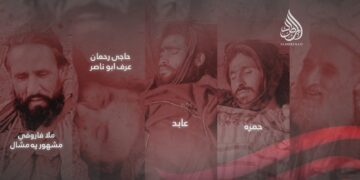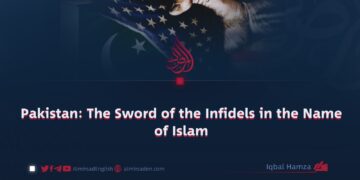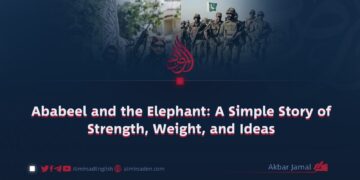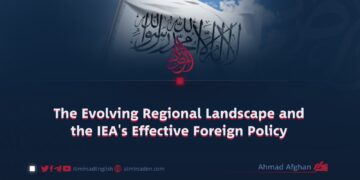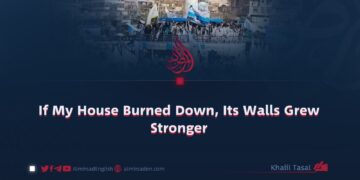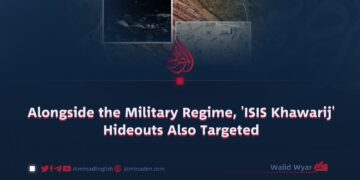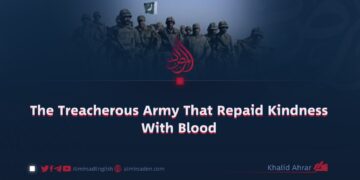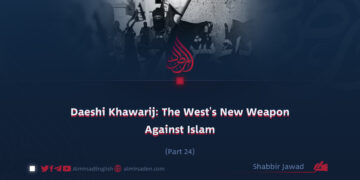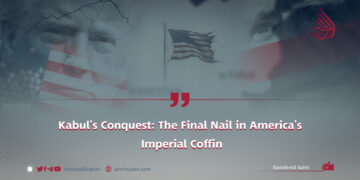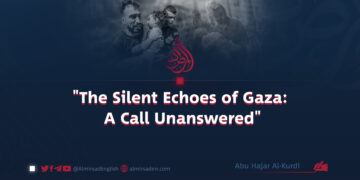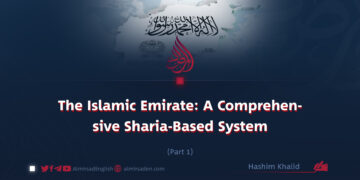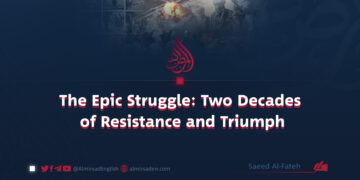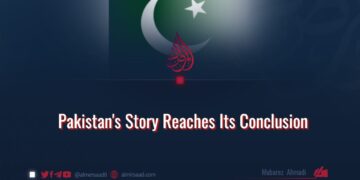Part 3
Written by: Osama Humam
In the previous two parts, we presented excerpts from an interview with a former ISIS adherent operative in Syria, identified under the alias “Saleem”. The interview was carried out by Jürgen Todenhöfer. Subsequent to their correspondence, another individual, a German citizen named “Abu Qatada”, who was a member of ISIS in Syria in 2014, initiated contact with Todenhöfer.
Abu Qatada’s real name is Christian Emde, a former Protestant Christian. He connected with Todenhöfer and was introduced as a media representative for ISIS.
Abu Qatada, being familiar with media, refrains from disclosing sensitive information about ISIS leaders. His responses during the interview were often cautious, and in many cases, he remained silent or gave guarded answers. He understood that the details of the interview would be published, but as an ISIS member, he remained committed to discussing the group’s ideology.
The ideology and customary practices of ISIS encompass denouncing Muslims and jihadist factions that slightly diverge from their beliefs as apostates, expelling them from Islam, and deeming them their primary adversaries.
When asked about Hamas, Abu Qatada remarked:
“Hamas and Hezbollah share similarities. Hamas presents itself as democratic while espousing Islamic ideals. I can confirm, based on reports from our associates in Gaza, that Hamas is perceived as a more significant threat to us than Israel.”
Regarding the number of fighters joining ISIS in the Middle East, Abu Qatada stated:
“I lack precise figures, but I can attest that roughly fifty Russian-speaking individuals enlist with us on a daily basis. It’s said that more than 6,000 fighters joined our ranks in a single month. Following the conquest of Mosul, our militia numbers in Iraq experienced a tenfold surge.”
The influx of Russian-speaking individuals, particularly from former Soviet Union countries, aligning with ISIS in the Middle East is noteworthy. Citizens from countries like Tajikistan have been enlisting with ISIS for over a decade.
Furthermore, combatants hailing from Tajikistan and other Central and Northern Asian nations have partaken in suicide missions in Afghanistan over the past three years.
Within Central and Northern Asia, strict restrictions are imposed on the implementation of many Islamic practices. Religious freedoms for Muslims are severely limited, and they cannot even practice Sharia individually in their daily lives.
These restrictions are justified under the pretext of preventing terrorism in Asia. However, these limitations have had the opposite effect, pushing frustrated Muslims toward extremist and takfiri groups like ISIS, making it easier for such groups to recruit them.







